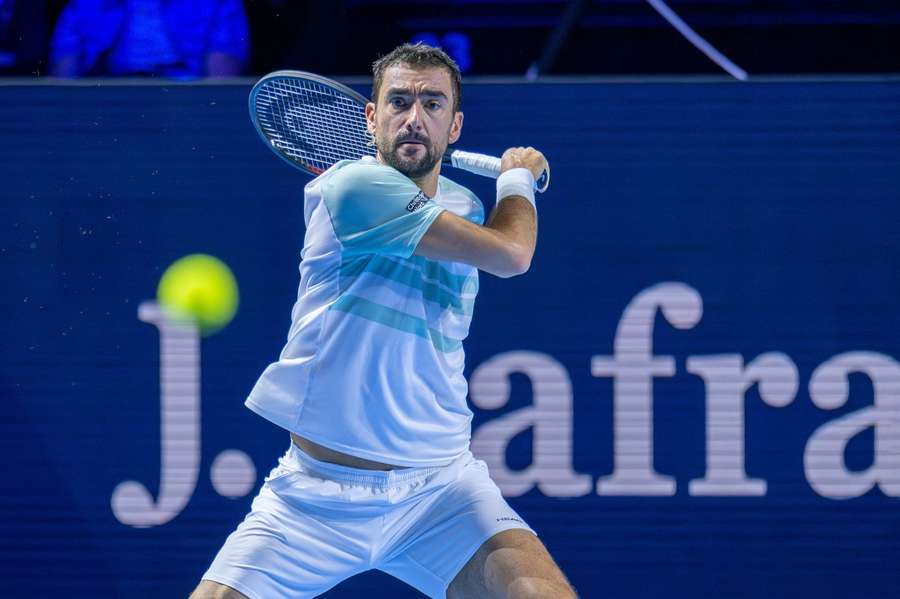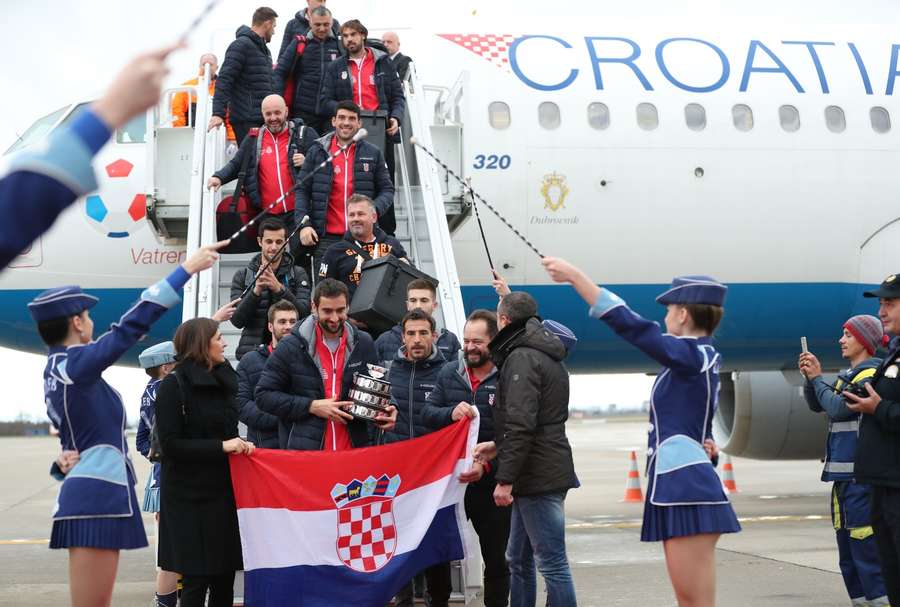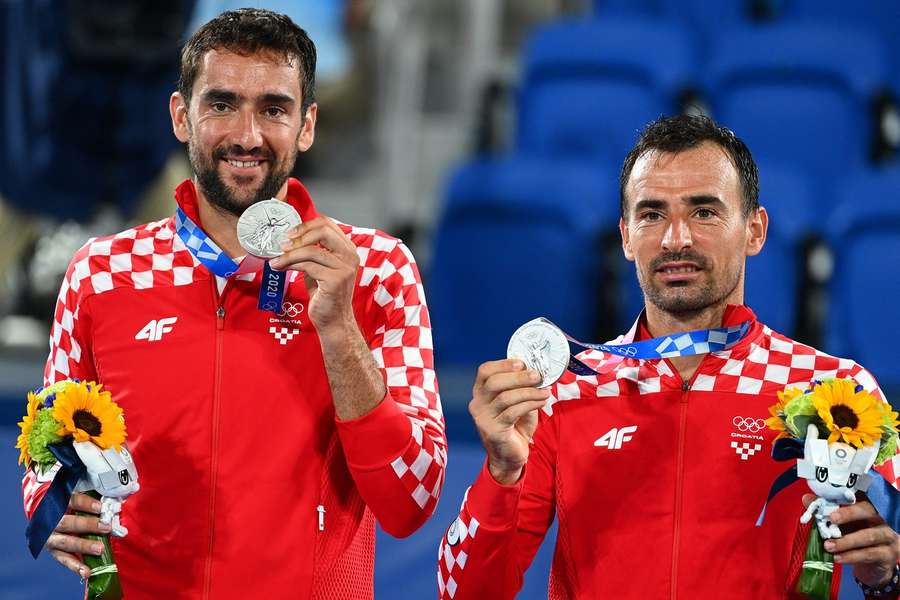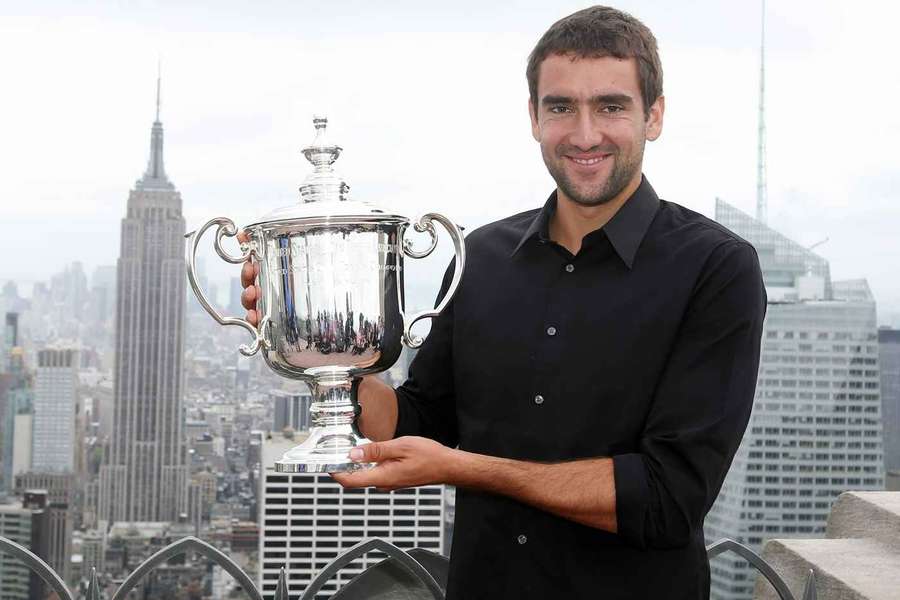At 37 years old, the Croat remains on the ATP Tour 20 years after going professional, and is currently ranked 76th in the world rankings.
Flashscore were fortunate enough to speak exclusively to Cilic, as he revealed the secret of his longevity, his best and worst moments, and what it meant representing his country at the Davis Cup and Olympics.
First of all, I'll ask about your longevity. You won your first tournament in 2008, your last one last year (2024). You've been among the best for almost two decades. What's the recipe for that?
"I think the key has always been consistency - not just in results, but in discipline and habits. I’ve always tried to take care of every detail: my training, recovery, nutrition, rest, mental preparation, investing in myself and my team.
"Over time, those small things build a foundation that keeps you going. I’ve also always loved learning - about the game, about my body, about new methods - so I never felt like I was standing still. That curiosity and passion to improve have kept me motivated through the years."
There aren't that many veterans like you, Djokovic and Stanislas Wawrinka. Why do you think that in the tennis world today that there are only six players over 35 in the top 100?
"One of the reasons is because of the generation shift. In 2015, 2016, we had 35 or 40 guys who were above 30 years of age, and this was mostly because the stronger generation was born in 1981/82/83.
"Then let's say those from 1989/90 were less able to break into the top 100 because of this stronger generation that was around 1981. But now we have really good young players, around 23 and 24 years old, who are really good, and that is why my generation struggles to stay with the best."

Wawrinka said that he would happily play Challengers as long as he has passion. Do you feel the same way? Or would you not want to play the smaller tournaments anymore?
"I agree with Wawrinka in the terms that you have to have passion; without passion, there is not much success. But for me, playing on Challengers, which is stronger than ever, is part of the larger picture.
"Obviously, I don't see myself playing constantly on Challengers, week after week, for a few years. That is just a process to improve your game and results, and to achieve something bigger. In my case, I want to compete at the top level, top tournaments like Grand Slams, the best that I can.
"For example, this year, that was a factor for my Wimbledon success. I played Challengers before Wimbledon, won one of the two, so I can be at the best possible level for Wimbledon, where I reached the last 16, and I was not far away from the quarter-finals. So, you always need to look larger picture."
And what is your inspiration to play in this regard?
"My biggest inspiration has always been the game itself - the competition, the fight, that process of trying to find your best level every day. I enjoy the discipline, the structure of training, and the feeling when everything clicks.
"It’s a very personal motivation - to see how far I can go, how well I can perform, even after so many years."
You achieved your biggest success at the US Open 2014. How do you remember that triumph now, after all these years?
"It’s still one of the most special moments of my life. That run felt like everything came together, especially towards the end - physically, mentally, technically. I was in the zone, playing my best tennis, and to lift a Grand Slam trophy is something you never forget.
"You train all your life, dedicate everything to achieve something like that, and considering the competition you are in, you start to think, is that going to happen ever. When I look back, it gives me a lot of pride and also motivation, knowing what’s possible when everything aligns."
The US Open is clearly a tournament that gives new winners a chance. Besides you, Juan Martin Del Potro, Andy Murray, Dominic Thiem and Carlos Alcaraz also won their first titles there. Why is that?
"The US Open has a special energy - it’s fast, intense, and emotionally charged. It’s at the end of the season when players are a bit tired, so sometimes new names can break through with a big run. The atmosphere and conditions there push you to play freely and aggressively.
"When you think about all the winners there, everyone played fast and aggressive tennis. I think that’s why we’ve seen different champions - it rewards courage and momentum."
You were also in the final at Wimbledon and the Australian Open. What was it that you were missing there to take that last step?
"In Wimbledon, unfortunately, I had terrible blisters in the final, which constrained me in my movement, and when you are not even close to 100% health-wise, your chances are very slim.
"In Australia, I played possibly some of the best tennis of my life, and there were opportunities in the fifth set to win the title. If I had been playing someone who was not as experienced in Grand Slam finals as Federer, I feel I would have a bigger chance to win."
Finally, you reached the semi-finals at the French Open. How do you actually play so well on clay? Your tennis doesn't seem ideal for it...
"I have always played well on clay. But to do something extraordinary, you have to be close to the best. And something clicked in my training, routines, and how I played matches on clay in 2017. Since then, my tennis on clay has improved significantly.
"And my run to the semi-finals in 2022 is a clear sign of that. Physically, I have always been prepared well, and when I found my form, and a few details clicked in the right spot, the results were there."
You were born in Medjugorje, Bosnia. Your father supposedly built a court for you there in his garden. Is that true?
"Yes, my father built the court in our backyard. His vision was just incredible, to give me the opportunity to play tennis, and to have a place to practice as much as I want, to build up my game. I still feel that is one of the main reasons why I succeeded. My parents provided me with conditions to train all the time."
It was with your childhood friend Ivan Dodig (who was also born in Medjugorje) that you won the Davis Cup for Croatia in 2018. How do you remember that?
"That was an incredible moment - to share that victory with Ivan, someone I grew up with, was very emotional. We had dreamed of moments like that as kids, and to bring the Davis Cup back to Croatia together was truly special.
"The atmosphere, the unity of the team - it was one of the proudest moments of my career."

How important is the Davis Cup for Croatia? I ask because in some countries, it is not considered that important, and some players don't even participate.
"It’s very important. Croatia is a small country, but tennis has given us a lot of pride and international recognition. Every time we play Davis Cup, the whole nation follows, and we enjoy those moments. The atmosphere in the Davis Cup must be experienced; they are just very special.
"The whole journey of winning the Davis Cup was extremely difficult, and also so special. Gave the whole team so many incredible memories."
Jannik Sinner recently pulled out of the Davis Cup, and the final is to be played in Italy, in Bologna. There is an uproar in his country about it. Do you understand his decision?
"Team Italy won their first Davis Cup in 1976. Their second and third came in the last two years (with Sinner). I think Jannik even announced after winning it last year that he would take next year off from the Davis Cup, which is very understandable.
"Tennis seasons are extremely long and difficult, and Jannik probably wants some rest for next year, which is normal."
Your frequent rival, Tomas Berdych, took over as the Czech Davis Cup team coach after his playing career. Can you imagine yourself ever taking on the role of non-playing captain? Would that tempt you?
"It’s possible. I’ve always enjoyed analysing the game and helping younger players, so being in that kind of mentoring or leadership role would be interesting. But I’d have to feel that same passion and commitment - if I do something, I want to give it 100%. We'll see."
You have a Grand Slam, a Davis Cup victory and an Olympic medal - that’s a nice treble. Still, the 2020 Olympic gold medal (in doubles) eluded you in a tiebreak and was won by your countrymen Nikola Mektic and Mate Pavic. That must have been a crazy match…
"Yes, it was incredible - so close, just a few points away. Of course, at that moment it was painful, because the Olympic gold is something very rare and special. But I was also proud of how we competed and how we represented Croatia.
"Losing to Mektic and Pavic - our compatriots - who had an incredible year before and after that, made it easier: it stayed in the family. Playing an all-Croatian final was historic, and sharing it with my best friend Ivan Dodig is truly amazing."

Do you still regret the loss today? You could have had a unique hat trick.
"I don't regret that loss. I just feel proud of what we have achieved - two boys starting tennis together and dreaming about playing on the biggest stages. And after everything we have achieved, to also win an Olympic silver. Just incredible."
You managed to establish yourself in the era of Federer, Nadal, and Djokovic. What did it take to succeed in their era?
"It took belief, resilience, and constant improvement. Competing in that era was both very difficult and very motivating - you couldn’t afford to stay the same. You had to keep pushing every year, every season.
"Playing against them made all of us better. It was a privilege to share that era, even if it meant facing the toughest opponents imaginable."
Alcaraz and Sinner are the reigning champions today. What advice would you give to the younger generation to match these giants? And who has the best chance of catching up to them?
"Stay patient, stay consistent, and focus on your development - not just on results. Learn to understand your game deeply, take care of your body, and enjoy the process.
"The best players like Alcaraz and Sinner have great discipline and love for the sport, and that’s what carries you through tough moments. Talent is only part of it - dedication is what makes the difference."

